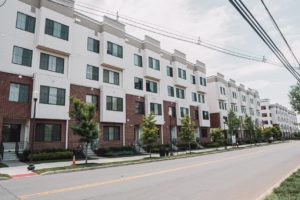How to Find the Perfect Neighborhood
Looking for the best area to live is not an easy choice, and the process is almost as hard as finding the perfect house or apartment. Choosing the right neighborhood is important since you will live in this place for a long time, and if you are thinking about purchasing a house, this will be at the top of your list. Knowing about crime rates, amenities, excellent school districts, and access to playgrounds (if you have a family) is fundamental.

First, consider making a list of your or your family’s necessities. This way your search will be easier, you will visualize everything you need on paper, and to help you with your list, check out our post Creating a List to Find a New House.
Online Search
Your first step is to search online about the community you want to live in. This includes Google street views, local parks, distance from the center of the city, your work, and last but definitely not least, look up the crime rate in the area. It’s paramount to know if you are moving to a safe place.
A nice neighborhood generally has exceptional schools, so if you have kids, this is essential for the area you are moving to. Pay attention to this and you will find a friendly community to raise your children!
Take a look around the neighborhood
Searching online about the community you want to live in is your first step, but after that, what you should do is to spend time in the area you want to move to. Look around, observe how the houses are, streets, traffic, cleanliness, sidewalks, if there are abandoned buildings, or people living in the streets. The secret here is to visit the neighborhood at different times of the day and the week, and you will see how it really is.
Traffic
Consider how far are you going to be from your work, your commute, how the traffic is in rush hour, or if you want to spend time in traffic. Second, take into account if there is easy access to public transportation — subways, bus stops, taxis, distance to the airport, etc. All that is important to keep in mind, this will be your daily life after all, so make sure that you have the best infrastructure, which will reduce stress in your everyday life.
Amenities
Do you like to have close access to grocery stores, restaurants, cafes, and the gym? If there are bars close to you, how noisy will it be on the weekends? Is the family-friendly neighborhood too quiet or does it have everything you need? Consider these questions, and it will save time in the future when running errands.
If you are the kind of person who likes to be involved with the community, it is nice to see if the area has libraries, activity centers, churches, etc.
Property Value
Whoever is purchasing a house, consider paying attention to the value of the house, how much it has increased in the last 5 years, and ask some real estate agent about projects for the future in the area. Regarding taxes, you need to know how much you will have to pay and how this will increase, so make sure that will be in your moving budget.
Now you have everything you need to find the perfect location to move to. Make sure you have all the items in your list checked off!












